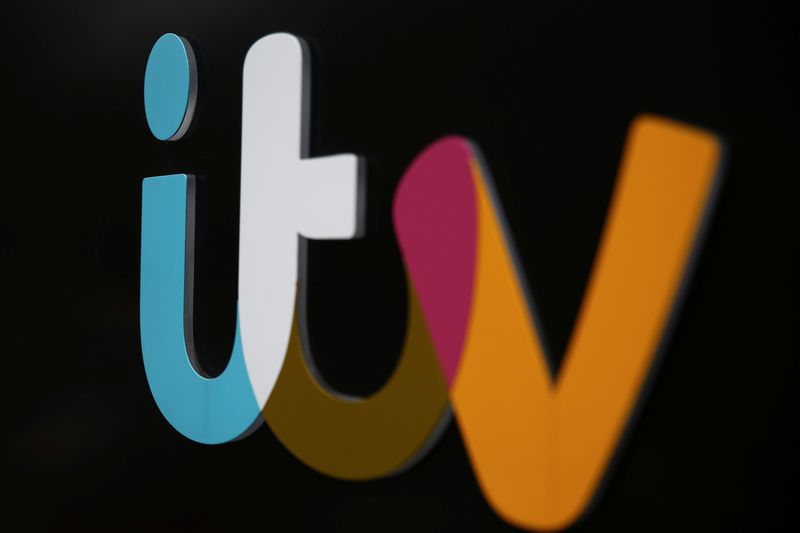By Paul Sandle
LONDON (Reuters) - ITV (LON:ITV), Britain's biggest free-to-air commercial broadcaster, said more advertisers were starting to return after the COVID-19 pandemic hit its broadcast and production revenue in its first half, causing earnings to halve.
Chief Executive Carolyn McCall said it had been "one of the most challenging times" in the history of the broadcaster.
"While our two main sources of revenue - production and advertising - were down significantly in the first half of the year and the outlook remains uncertain, today we are seeing an upward trajectory with productions restarting and advertisers returning," she said on Thursday.
The company said ad revenue for the second quarter fell 43%, fueling a 17% decline in external revenue to 1.22 billion pounds ($1.61 billion) in the first six months of the year. Adjusted earnings before interest tax and amortization halved to 165 million pounds.
Ad revenue in July was down 23%, not as bad as the 42% drop in June and the 46% decline in May.
McCall said travel companies had returned to stimulate demand for flights, and categories like DIY were back, in addition to telecoms and tech which had advertised throughout.
But the outlook remained uncertain, ITV said, and it did not give financial guidance for the year. The challenge would be retaining the new brands that had come to ITV and bringing back other advertisers to television as the outlook improved.
Shares in ITV, which have tumbled 60% since the start of the year, fell as much as 4% and traded 2% lower at 59.7 pence by 0915 GMT, valuing the business at around 2.4 billion pounds.
McCall said the lockdown had boosted viewing across the board, including news and daytime on broadcast and on-demand on its Hub and BritBox services.
ITV said subscribers for BritBox, which will see satirical show "Spitting Image" return this year, were ahead of target, but it did not give figures. Analysts at Barclays (LON:BARC) said the market would take that to mean numbers were weak.

ITV said it studios unit, which reported a 17% decline in revenue to 630 million pounds, had 70% of the shows it had paused back in production, including its popular soaps "Coronation Street" and "Emmerdale".